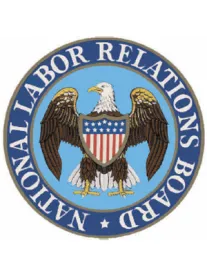Former National Labor Relations Board Acting General Counsel Lafe Solomon’s continuing to serve as Acting NLRB General Counsel after President Barack Obama nominated him to the General Counsel position violated the Federal Vacancies Reform Act of 1998, the U.S. Supreme Court has decided in a 6-2 decision. National Labor Relations Board v. SW General, Inc., dba Southwest Ambulance, No. 15-1251 (Mar. 21, 2017).
Solomon was appointed Acting NLRB General Counsel on June 21, 2010, and was nominated to serve permanently as General Counsel on January 5, 2011, and May 23, 2013. The plaintiff in this case challenged his tenure as Acting General Counsel from January 5, 2011, to November 4, 2013.
The Federal Vacancies Reform Act (FVRA) prohibits a person from being both the acting officer and the permanent nominee simultaneously. The Supreme Court held that, under the FVRA, Solomon could not serve as Acting General Counsel because Obama had nominated him to fill the General Counsel vacancy permanently. Justice Clarence Thomas concurred in this decision. Justices Sonia Sotomayor and Ruth Bader Ginsburg dissented.
The Supreme Court’s decision contains an extensive review of the language of the statute and its legislative history. Although the decision involved the National Labor Relations Board, it has broader ramifications since many federal agencies use the FVRA to fill open positions on an interim basis.
Background
One of the responsibilities of the NLRB General Counsel is to investigate unfair labor practice charges filed with the Board, and if he or she finds merit, to issue a complaint against the charged party.
In 2013, an NLRB Regional Director, exercising authority on Solomon’s behalf, issued an unfair labor practice complaint alleging that the employer had improperly failed to pay certain bonuses to long-term employees. After a trial, the employer was found to have committed unfair labor practices, and upon appeal, the NLRB agreed. The employer then appealed to the U.S. Court of Appeals for the District of Columbia Circuit, arguing the unfair labor practice complaint was invalid because the FVRA prohibited Solomon from serving as Acting General Counsel after he had been nominated to fill the General Counsel position permanently. The Court of Appeals granted the employer’s appeal and vacated the NLRB’s Order. The Supreme Court’s decision affirms the Court of Appeals holding.
Questions Left Unanswered
Some issues are left open by the Supreme Court’s decision. For example, the FVRA exempts “the General Counsel of the National Labor Relations Board” from the general rule that actions taken in violation of the FVRA are void ab initio. 5 U.S.C. §3348(e)(1). Therefore, in its decision, the District of Columbia Circuit “assume[d] that section 3348(e)(1) renders the actions of an improperly serving Acting General Counsel voidable” (meaning, not void) and rejected the Board’s argument against voiding all of Solomon’s actions. 796 F.3d 67, 79-82 (D.C. Cir. 2015). As a result, despite the fact that Solomon served as Acting General Counsel in violation of the FVRA, the NLRB was permitted by the Court of Appeals to raise arguments (e.g., that violation of the FVRA is harmless error) about why the Court of Appeals decision against the employer should not be voided. The Board did not seek certiorari from the Supreme Court on this issue, so the Supreme Court did not consider it. Thus, whether the Acting General Counsel’s decisions are void or voidable appears to be an unresolved, open question.
Similarly, the breadth of the ruling (e.g., whether it is applicable to other Board decisions), although addressed in dicta by the Court of Appeals, also was not decided by the Supreme Court. For example, the Court of Appeals said in dicta, “[W]e emphasize the narrowness of our decision. We hold that the former Acting General Counsel of the NLRB, Lafe Solomon, served in violation of the FVRA from January 5, 2011 to November 4, 2013. But this case is not Son of Noel Canning and we do not expect it to retroactively undermine a host of NLRB decisions.”
Post-Noel Canning Ratification of 2014
It should be noted that, on July 18, 2014, the NLRB ratified “all administrative, personnel, and procurement matters taken by the Board from January 4, 2012 to August 5, 2013.” However, this ratification was intended to cure some of the issues raised by Obama’s appointments of Board members on January 4, 2012, that were found invalid by the Supreme Court in NLRB v. Noel Canning, 134 S. Ct. 2550 (2014). (Moreover, since a General Counsel is appointed by the president and confirmed by the United States Senate, it appears the NLRB did not have the authority to ratify the Acting General Counsel’s actions.) Therefore, the NLRB’s 2014 ratification appears to be inapplicable to this situation.
While the Supreme Court’s decision calls into question the validity of an official action taken by Solomon or on his behalf during the period he served as Acting General Counsel — from January 5, 2011, to November 4, 2013 — whether a court will refuse to invalidate an action by Solomon in another case is a question for the future.






 />i
/>i

